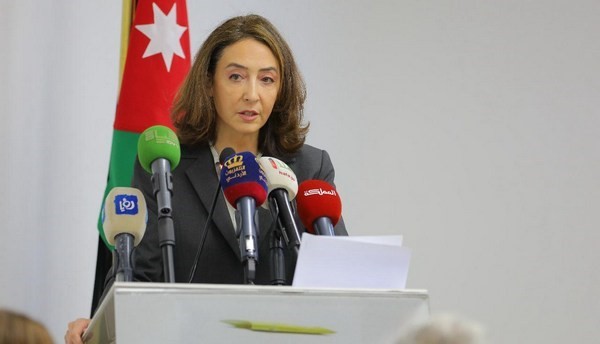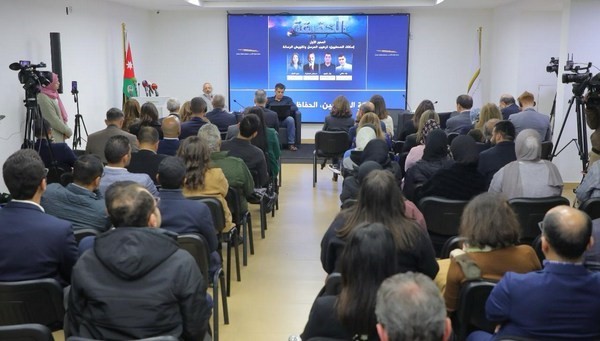AMMAN – As of December 19, at least 61
Palestinian journalists have been killed in Gaza, the Committee to Protect
Journalists reported, and with the latest assault on Al Jazeera cameraman
Samer Abu Daqqa, and injury of the Bureau Chief of Al Jazeera in Gaza, Wael Al
Dahdouh, it is even more clear that Israel is deliberately targeting journalist
as part of its ongoing war.
اضافة اعلان
A panel session held recently titled
"Protecting Journalists, Safeguarding the Truth,” addressed the attempt of
the Israeli Occupation authorities to conceal its targeting of journalists,
restricting them, and erasing their testimonies.
During the opening of the panel
Princess Rym Ali, the founder of the Jordan Media Institute said “This is not the first time
journalists have faced suppression and targeting, leading to the emergence of
local activists and journalists who bravely report events.”

During the session, civil reporters in Gaza
shared their experiences and the hardships they continue to endure during this
war
Professor of journalism and media studies at
the Lebanese American University (LAU) and
Jordan Media Institute (JMI) Jad
Melki highlighted the role of media in resistance and struggle, clarifying that
when Israel targets journalists, it is part of a broader strategy aimed at
suppressing the truth.
He stressed that “The enemy not only targets
journalists but also paramedics, the families of targeted journalists, and
media institutions. Israel disrupts their work by cutting off electricity,
internet, and broadcasting. It also targets the social media accounts of
journalists, reflecting the enemy's fear of exposure and accountability for
human rights violations.”
He added “Today, our role is to be a resistant
media. This type of media is based on principles, including resilience and
perseverance. Popular media drains the enemy; for example, when a journalist
writes content against Israel, it forces the state to spend money on propaganda
against it, economically draining the enemy. Additionally, it nurtures the
environment and unifies platforms, calling for institutions and journalists to
innovate new approaches.”

Resistant media aims to boost the morale of
the resistance, the people, and allies while undermining the enemy's morale,
exposing lies, documenting crimes, and shattering its false image.
Nidal Mansour, the president of the
Center for Defending Freedom of Journalists (CDFJ) remarked "The deliberate and
systematic targeting of journalists has become unmistakable, and treaties and
agreements have crumbled in the face of this ordeal."
Meanwhile, Dana Suyyagh, CEO of Al-Mamlaka TV
stated that while the Western narrative has changed recently, highlighting the
struggles of the Palestinian people, the most crucial narratives come from on
the ground, such as journalists like Dahdouh and other influential figures, who
have also taken to social media, as its impact has become stronger.
Read more Features
Jordan News




